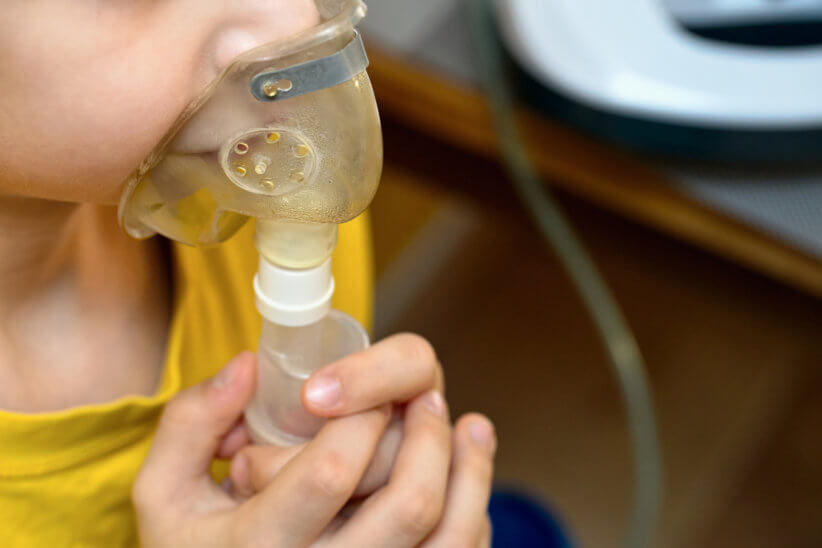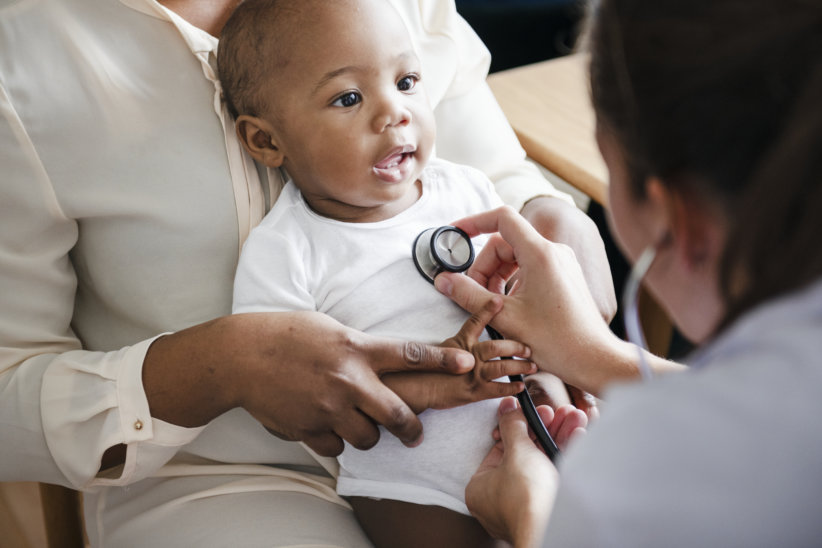
RSV and Other Respiratory Illnesses: What Parents Need to Know
If you are a parent, you are most likely hearing about the surge of RSV and other respiratory illnesses affecting young children with the arrival of flu season. Being shared is that doctors in parts of the country are seeing a resurgence in RSV, which is a common respiratory illness, but is also known to be severe in infants and older adults.
RSV can even lead some kids to the hospital. As it stands in the United States right now, things are bleak in the South, with some southern states in particular experiencing a surge in RSV. In fact, News Nation reports pediatric beds at Cook Children’s Health Care System, Fort Worth, Texas, are at full capacity.
But this doesn’t mean New York is in the clear right now. Health officials expect RSV to spread north soon, according to ABC News.

Is the RSV Shot Available for Kids?
There’s some good news–and not-so-good news. A shot to help protect infants from RSV was announced this year, but supply is limited. Because of the shortage, as of Oct. 23, the CDC is recommending prioritizing the shot for infants with the highest risk for severe RSV disease. Kids with the greatest risk of severe illness from RSV include premature infants, younger infants, children younger than 2 with chronic lung disease or congenital heart disease, children with weakened immune systems and children who have neuromuscular disorders.
Of course, after a few years of dealing with some severe viruses, this is not what parents want to hear. But cliche as it sounds knowledge is power and we have the information parents need to know regarding RSV and other respiratory illnesses in children this year as well as the symptoms to look for.
What is RSV—respiratory syncytial virus
RSV—respiratory syncytial virus—is a common seasonal respiratory virus that many children get by the time they’re 2 years old. For most kids and adults, the virus causes a mild cold-like illness with symptoms such as a runny nose, coughing and sneezing.
But for some infants and young children, it can be quite dangerous. Each year in the United States, an estimated 58,000-80,000 children younger than 5 are hospitalized due to RSV infection, according to the U.S. Centers for Disease Control and Prevention (CDC).
So, what’s the state of RSV here in the metro area? Zeroing in on New York, positive cases of RSV in the state have been increasing weekly this fall. But, as of Nov. 4, the state was at 6.625 percent compared to 13.248 around the same time last year, according to the CDC. Rates are based on total PCR tests.
What Made 2022 Different for RSV?
RSV was hard hitting last year. It was the first flu season since the start of the COVID-19 pandemic when guidelines such as social distancing and mask-wearing were lifted. Doctors say those guidelines not only helped prevent COVID-19, but other common respiratory illnesses, too.
So, with most COVID-19 measures dropped, other respiratory illnesses were coming back.
“This is not a surprise. We have been physically distancing, masking and avoiding super-spreader events. Birthday parties and play groups have been downsized,” Sten Vermund, M.D., professor of public health and pediatrics, Yale School of Public Health, told New York Family last year. “We’re not exposed to the usual viruses that we get exposed to as a respiratory virus season. So, children and adults alike come into this virus season, which has started right about now, and we’re more vulnerable.”
Vermund added that people have not had the infections they usually get. The partial immunity that may tide over year to year is not dramatic. Now, people are taking fewer precautions, such as going back to normal with social gatherings without masks. So naturally, viruses are going to circulate at a higher level.
“One of the facts about the COVID time period was that flu and other respiratory viruses were at historic lows because of the precautions we were taking for COVID,” Vermund said.
Laura Purdy, M.D., a family medicine physician, added that doctors are expecting RSV and other respiratory illnesses to be on the rise this time of year.
“We expect to see it happen this time of year. As the weather gets colder, respiratory viral infections are more contagious. They spread easier,” Purdy said.
Symptoms of RSV in Infants: What to Look For
In many people, symptoms of RSV can look like the common cold. Early symptoms of RSV can include a runny nose and cough.
But when it comes to infants, there are specific RSV symptoms parents should look for, including:
- Irritability
- Decreased activity
- Decreased appetite
- Apnea—pauses while breathing
A profuse runny nose in an infant can also be a sign of RSV.
“If you see a baby and it looks like someone turned on a faucet in their nose, it’s going to be RSV,” Purdy said.
Purdy explained that RSV, similar to other upper respiratory tract infections, can spread to the lungs, making it more dangerous. It can result in bronchiolitis, a common lung infection in young children and infants that causes inflammation and congestion in the small airways of the lungs. These are the children who require in-hospital treatment.
“A lot of those babies get hospitalized because they need oxygen,” Purdy said.

When to Go to the Hospital
Rebekah Diamond, M.D., hospital pediatrician in NYC and an assistant professor of pediatrics at Columbia University, described what a baby with more severe RSV looks like—and when to seek medical help.
“Some of the reasons to get help right away is if you have a baby who’s breathing very fast or if they are breathing in a way that you can see the skin sucking in between their ribs or in their neck. Those are called retractions,” she said.
Two to three out of every 100 infants with RSV infection may need to be hospitalized, according to the CDC. Treatment in the hospital can include oxygen, intubation, and/or mechanical ventilation.
As scary as this sounds for a parent, it can be reassuring to know that treatment is very effective.
“Your instincts are right. If you’re worried, just bring them in and we’ll take care of them,” Diamond said. “For ages, pediatricians have dealt with this in the hospital, and it’s very, very common.”
From the public health perspective, Diamond added that it’s important to be mindful that illnesses such as RSV are mild and curable because of the resources that are available, including enough hospital beds and staff.
“With modern medical support, the outcomes are extremely good, even if you have to go to the hospital or intensive care unit, which is not uncommon. It’s all dependent on how our public health system is working to get the right resources,” Diamond said.
Preventing RSV
Not surprising, some of the best ways for kids and adults to prevent the spread of RSV are pretty simple. It’s basically what you’d expect to do when trying to prevent other respiratory illnesses, including:
- Washing hands often
- Avoiding close contact with sick people
- Covering coughs and sneezes
- Staying home if you’re sick





















